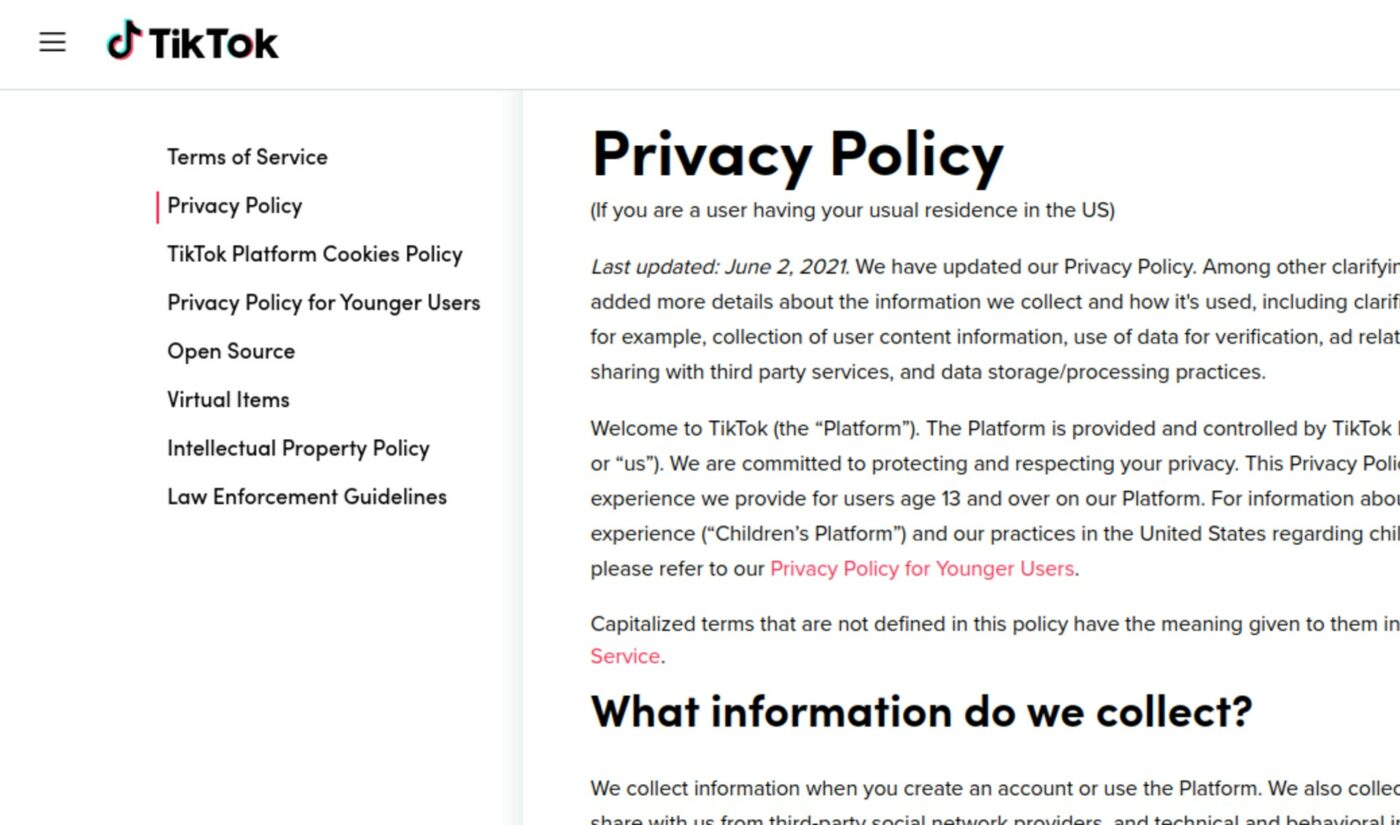TikTok updated its U.S. privacy policy on Wednesday, adding that the app “may collect biometric identifiers and biometric information as defined under U.S. laws, such as faceprints and voiceprints, from your user content.”
The changes arrived within the ‘Image and Audio Information’ section of the company’s policy. Biometrics are body measurements related to human characteristics used for identification, such as fingerprints, face recognition, or voice recognition.
TikTok did not elaborate on what it was working on that could require biometric data, but told Techcrunch that it would ask for consent if and when such data collection began where required by law.

Subscribe for daily Tubefilter Top Stories
Techcrunch notes, however, that only a handful of U.S. states have biometric privacy laws. Additionally, the amendment has not been added to TikTok’s privacy policy in other regions like Europe, where the company is currently grappling with regulators about child data policies.
The amendment also arrives after the company settled a $92 million class action suit for violating the Illinois Biometric Information Privacy Act in February. In more than 20 separate cases, Techcrunch reports, the app was found to have collected and shared personal and biometric information — specifically for the use of facial filter technology and special effects — without user content.








